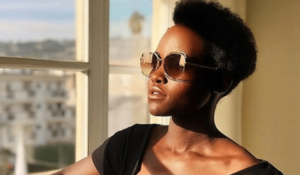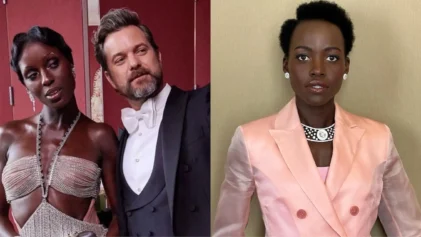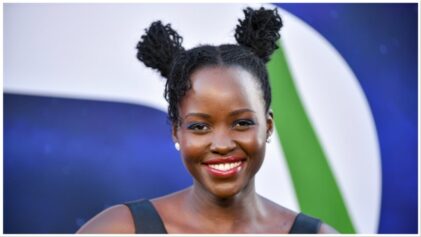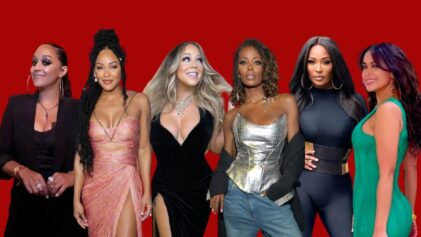Lupita Nyong’o sat down with Porter, and one of the topics she discussed was how natural hair has been received, both in and out of Hollywood.
“My hair is something that historically has been shunned,” she said. “I mean, how often do you hear ‘You can’t get a job with hair like that?’ Natural, African, kinky hair — it’s often been painted as uncivilized or wild.”

Nyong’o is on the cover of Porter, where her natural locks were untampered with, which didn’t happen when she posed for Grazia.
As we previously reported, the editors of the UK publication gave the actress a ponytail, smoothed out her hair and removed its natural kinks. Nyong’o then blasted Grazia in an Instagram post that received a lot of attention.
So to make sure young girls are proud of their natural features, the 35-year-old wrote a book titled “Sulwe” that’ll hit shelves next year. The story is about a young girl who learns to be proud of her skin tone, and the actress said it’s somewhat autobiographical.
Nyong’o also explained that she was inspired to write the book in 2014, right after her speech at the Essence Black Women in Hollywood awards.
“It was about having dark skin in a world that favors traditional Western standards of beauty, light complexions and silky hair and my own journey from insecurity to a place of self-acceptance,” she said about the speech.
“I was touched by how it had resonated with so many people of color and not just Black Africans. I started to realize that there was a demographic that really needed to hear this message but wouldn’t hear my speech. I wanted to get to kids before they reach an age where the world is telling them they are not as valuable,” added Nyong’o
Later in the interview, the Nairobi raised-actress spoke about the success of “Black Panther,” and how she knew it was something special during filming.
But at the same time, she had no idea of the cultural phenomenon it would be and was thrilled to see moviegoers dressed in African clothing all around the world.
On top of that, Nyong’o said the film has improved communication between Africans and African-Americans, which she’s thrilled about.
“I was in Nigeria not long after the film came out,” she explained. “And one man said to me ‘How are my cousins [Chadwick] Boseman and [Michael B.] Jordan?’ I had never heard that sentiment come out of an African’s mouth. It started a long overdue conversation about our shared identities.”


